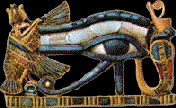Of all the gods of mankind the most enigmatic seems to be our Judeo-Christian God - and no other god had a son who was himself and his own father, dwelling in a trinity of holy mercy, spirit and grace. But the historical Jesus, born during the harvest season long-established to be October, this son of good, honorable Jews, brought up an obedient Jew, an honorable Jew, who worshipped as he was told his forefathers did, I think of the child growing into manhood - how much did the child Jesus know he was separate, special, perhaps the true son of the one God himself? He was taught to believe in the coming of a Messiah. His Mother already knew in her heart that her son was that Messiah, the Savior of whom the Old Testaments foretold would come. I wonder of his Guardian, St. Joseph - did he ever sit the boy down and tell him the truth of his ancestry? Would he have believed it? I wonder, how did he see the world through those 100% human/100% Divine eyes? And is that to say the human eye is a Divine organ, as are all human organs since they were formed in "His image and likeness.."? I don't know. I always thought of that phrase as parable, that God created the evolutionary road stretching millions of years that would eventually lead to the human we resemble today. But as for "image and likeness" I think those words meant the ability to recognize God in each other, the act of imagining the truth of it, the choice or free will to accept it. We were made to see the love of God in each other. For the one thing that set the man Jesus apart from other prophets was his ability to love. He saw love in everything and everyone he encountered; was he seeing his Father? Why did he never write of it? Surely he could write, he was an obedient Jewish child and student who went to Temple and studied the Torah (The Old Testament) abiding by every restriction and rule. It was when he was a bit older that he found himself lost in a rage seeing the pawn shops and vendors operating outside the Temple. What would make a nondescript Jewish child so angry at this everyday occurrence of the times? It's not proof of the Divinity in him, but it begs so many questions.
We choose to pick a day out of many and celebrate "good tidings", well-being in the hearts of men, peace in our inside and outside worlds. All the things Jesus stood for. We also choose to honor his birth during this time as a convenience brought about by the need to have a good storage of food laid in for the winters' cold. For Mary's "confinement" was said to be "uneventful" and is celebrated on 12/8.
All the books of the Old Testament, the writings of the old prophets we believe were inspired to put these words down, can anyone read the Psalms, the incredible love found there, the knowledge that there is a God who will preserve you and protect you; could anyone read Chronicles and not wonder at Solomon? Chose any Old Testament writing, the God who inspired it is said to be, all at one time, your judge who shall mete out every punishment for the most forgotten of "sins" yet still love you so much as to care for you before your name was formed. Would this not confuse the scholars, who even took up the study of this document as a science in their confusion.
I believe this is why God chose that time, in that place, to live and work among his favored creation, the only one who could dwell upon itself and make decisions from those thoughts, we humans, confused as to our God, the life we may know after our deaths, all that the Old Testament told the Jews at that time. His only entree into the world would be as a human being, yet still Himself, both whole and complete, and one day in his later adults years, leave his parents home and fulfill his destiny. We all know the words that destiny gave us: "Love thy neighbor as thyself." "Know that my father loved you before you were born ..." "My Father's house has many mansions..." it goes on and on, and carefully, ever so gently, contradicts and yet embraces the words of the Old Testament. I believe Jesus dwelt among us, God himself as His Son, because He saw so clearly the ruinous direction mankind was taking, and needed (as only a God can need and we can never comprehend) to re-direct us toward a more loving, forgiving, patient, caring, "forever" God. The God of the New Testament is aligned with places of reward and punishment, you can have Him forever or lose Him forever. Idon't believe that, nor believe there are places where "humans" kneel in humility before a great throne with this God upon it, nor are condemned "forever" to a lake of fire that burns but does not extinguish. Why would any God be desirous of such a thing? What is the holy answer and final accomplishment? How does such judgment enhance the glory of that which created a universe? To my mind, God must be so far removed from puny things like revenge and punishment that He is the evolution of Love itself. A God who loves, always loves, under any condition. We carry the responsibility of free will, to please him or not. No one on earth needs lessons in what that means.
So we come back to the young man-child Jesus, a good Jewish boy who may or may not have known who he really was. For God himself had to take on the cloak of humanness, leaving his Divinity for such a time as needed - otherwise, he would've simply tossed thunderbolts around, he would've stepped down from the cross and said "Look what you did to me, I who love you so." Had he done that, he would've taken away our gift of free will, the ability to decide for ourselves just who he was. Or wasn't. We would've lost our ability to believe or not to believe, we would simply have fear of a power so omnipotent.
The Old Testament tells me to fear and obey without question. Embraced with the New Testament, I find I have that one ingredient making all the difference: Love. I can love this power, whatever it is, which is better than me, which promises me nothing but continuation of that love, and who I have the freedom to enjoin within my life, or not.
If Jesus had written a book .... it seems to me, there would be no other plausible religions on the earth today, a very sad paucity of human function and knowledge. Others may feel he did write a book, the New Testament, and in many ways that might be very true. Though channeled though the memory of fallible men, these Gospels tell the history of the "birth" of a child, in no way resembling a human birth, it tells nothing about the early life of this child as he grew, and after three years of teaching his views about what God really was, given nothing but betrayal and pain for his efforts.
Could he have written a book? Would that make any sense? And since he was both God and man in equal form, what would he say?
I don't think it really matters to God when or if we observe his birth or death, how could it? I do know we have the ability to love and to chose - with those qualities, what could any book possibly tell us we wouldn't already realize should be done? Love, unto the least of us, and love again.















































4 comments:
Back in Jesus' day not that many people could read and write. You had to go to "church" for someone to read the Bible to you. Paper was also scarce, not everyone could have a book or a pen and paper.
Also "back in the day" it was probably better to have witness' to tell the stories and happenings. If Jesus wrote his own book would anyone have believed it? Isn't it better to have the books of the Bible (though inspired by God) written by someone who witness a miracle than to have Jesus tell you he did a mircale?
Kathy
Hi Luddie this entry indeed certainly took my interest. I believe in my heart now that your entry made me think of the possibility "Why did God not write a book?", that he did write a book. He wrote a living book, we those of his creation and all of nature and the beautiful animals and creatures are God's book. We just have to look around us and see God in everything. It is truly amazing this world and especially the beauty that surrounds. He has written a book with many pictures we just have to look around us and see it all. He has written a book of love, we can feel love in our hearts if we choose to open that heart to love. He has written a book of mystery and intrigue he has created a world and in so doing all the characters in his book are those of us that walk the earth and the ending is as we choose to live till we go to him in heaven, we write our ending. God bless you my dear friend, you always amaze me at the things you write. You are so very intelligent and knowledgable about these things, I know so little of. There is indeed a God and I sincerely believe we are his book, those of us who were fortunate enough to be born of our Lord.
I hadn't ever thought of this. You're right...he should have written a book. Not sure he could have though. As your previous commenter said, the supplies necessary were scarce, and how to carry it all with him his whole life and keep it safe? Things were different back then. But, what an interesting thing to ponder.
Pam
I've always wondered about love. To me, it seems love is a choice, not a feeling or emotion.
What makes God's love special to me is that He chose to love us. He can't agree with everything we do or the paths we choose. But He chooses to love us regardless of our choices, flaws, or mistakes. What is perfect about God's love is that He never acts inconsistently with His choice to love us. He has chosen to love us and His actions are always consistent that decision. As imperfect humans, we can't expect to be able to maintain a loving relationship if love is a feeling. Strong emotions or feelings are never enough to hold a relationship together - it requires actions that show your decision to love a person. Feelings aren't enough.
Feelings come and go; decisions last longer and are more stable and reliable than any emotion or feeling, which means that to love must be an active decision. 'Love' is actually a verb when you look at it this way. Our parents don't always feel loving towards us, but they try to make their children better people by their own actions. The love we give and receive is not perfect. Sometimes we act inconsistently with our decision to love someone. Love requires you to act in certain ways that promote the lover and the loved to become better people.
Bad choices we or other people make are inconsistent with the decision to love, but they let us become more aware of what it really means to love someone - you have to love someone regardless of how you feel towards them. We have to understand a choice in order to make it; choosing to love means that you choose to put this person's well-being in front of your own happiness.
I posted something similar in my blog, Thinking is Overrated, inspired by your post.
Post a Comment